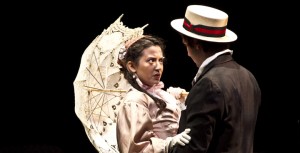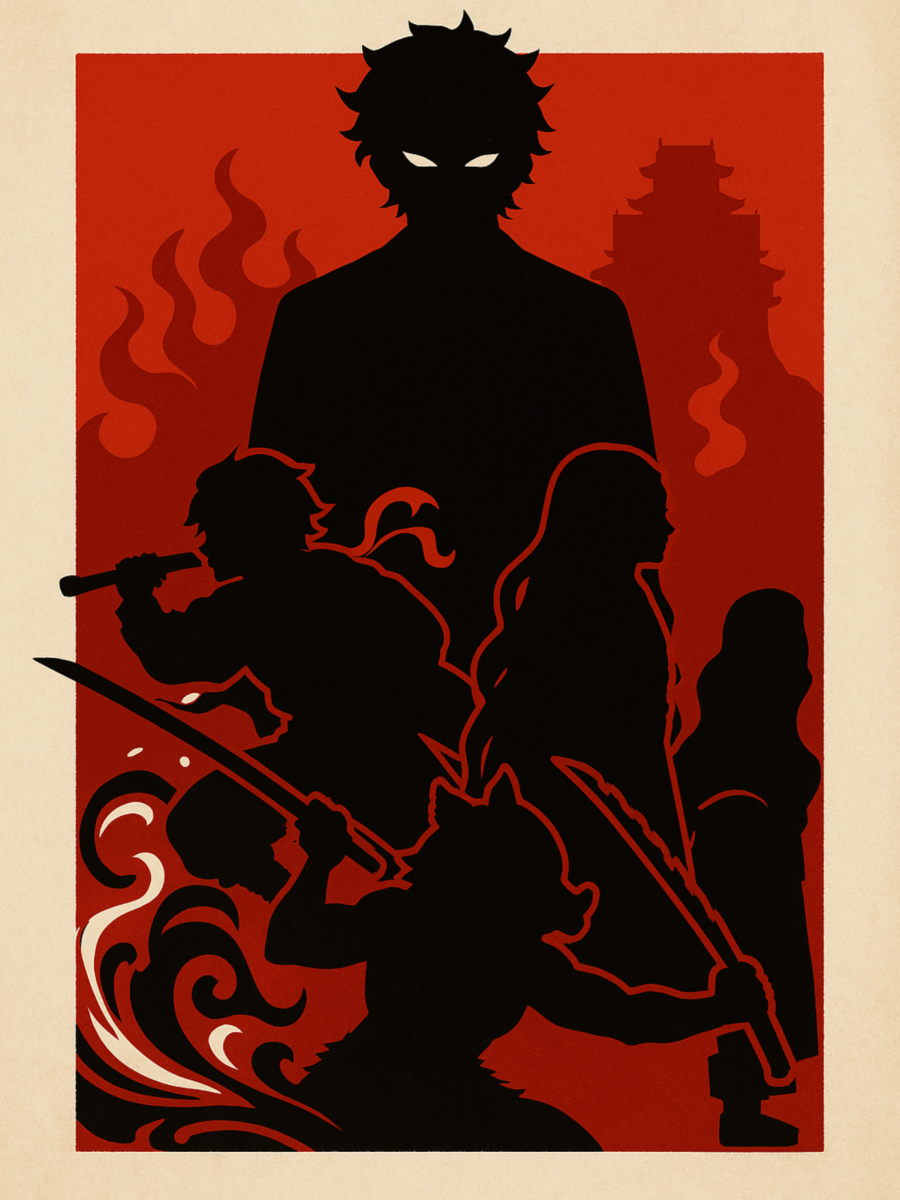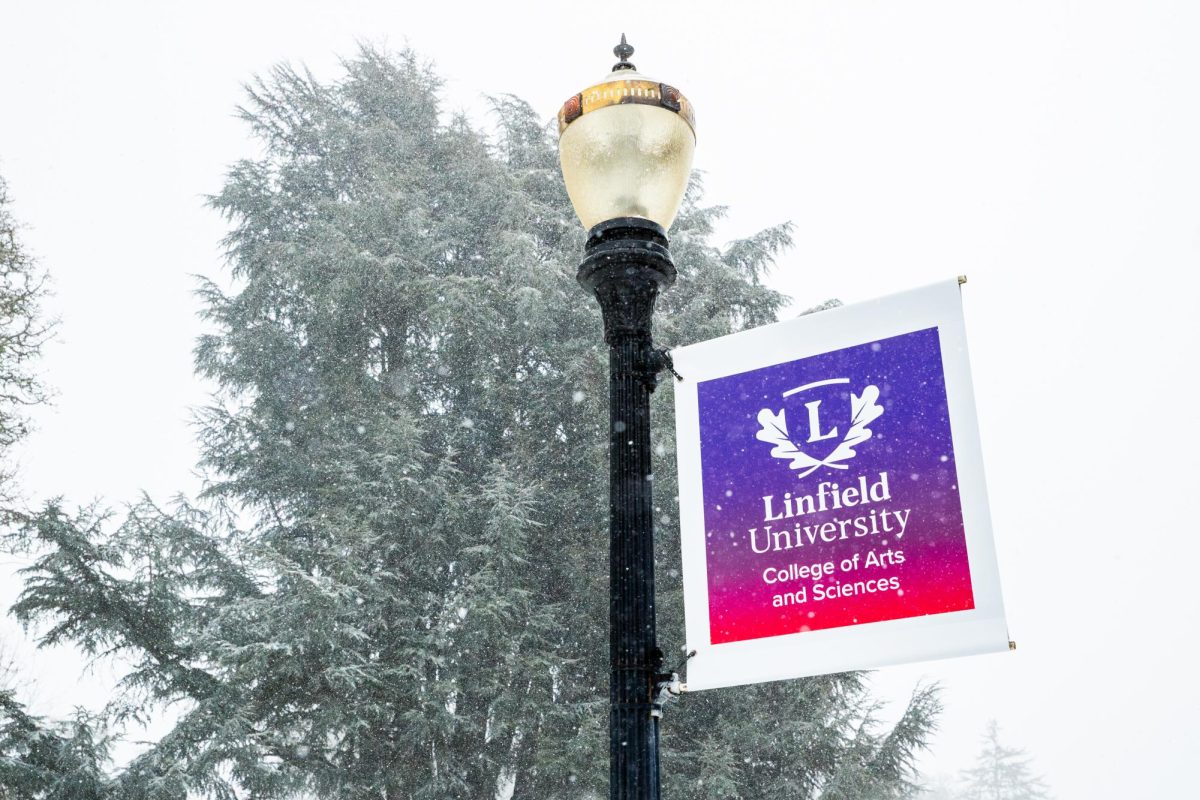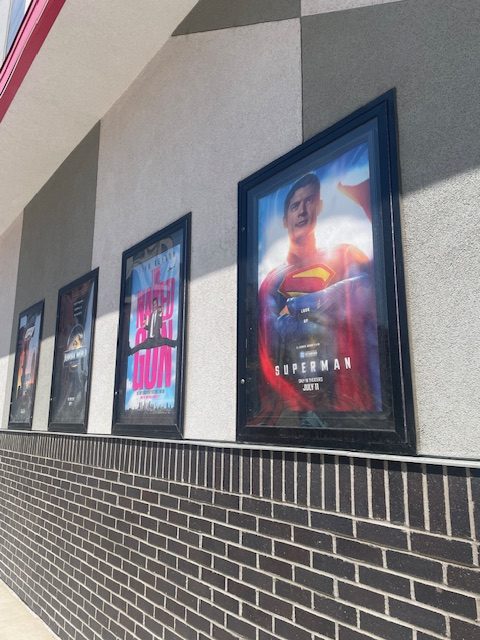 The world of Oscar Wilde’s short story, “Lord Arthur Savile’s Crime,” adapted by playwright Robert Urbinati, came alive under the direction of Elizabeth Rothan, class of ’85, in the premiere of “West Moon Street” on March 15.
The world of Oscar Wilde’s short story, “Lord Arthur Savile’s Crime,” adapted by playwright Robert Urbinati, came alive under the direction of Elizabeth Rothan, class of ’85, in the premiere of “West Moon Street” on March 15.
Audiences were taken back to the Victorian era and upper-class British society where duty was a priority for gentlemen such as Lord Arthur Savile, played by freshman Cole Curtright, who has a “secret that he kept locked away in his heart.”
The performance kept audiences on their feet with a thick plot, witty lines and eloquently designed period costumes by instructional associate costume designer and shop manager Alethia Moore-del Monaco.
“West Moon Street” received positive comments from Linfield students.
“I love how visually gorgeous the costumes and sets are,” sophomore Caitlyn Olson said.
Freshman Sylvan Tovar said he thought the characters were performed well.
“I liked Lady Windermere [played by freshman Gabrielle Leif]. She was really driven and had unique interests,” he said. “My favorite part was that actors were given a voice, and it was well acted — really well done.”
Curtright said he could easily connect with the lead role of Arthur Savile.
“I think in some aspects I am like my character,” Curtright said. “I can relate to him. He likes to have fun.”
Junior Kanon Havens, who played Sybil Merton, said she felt the opposite about her role.
“I thought I was much more like her when reading the script,” Havens said. “I found out she was bubbly and energetic, but I wasn’t really connecting to the play. She’s not really like me.”
Rothan noted some challenges with the play, including developing the role of the maid, removing the piano player and changing one male role to a female role.
Senior Rachel Westrick, who played Mrs. Podges, said that although Urbinati had to rewrite the play to accommodate these changes, the physical appearances of the characters didn’t matter.
Freshman Jacob Priester, who played Charles the Butler, talked about the significance of plays in general.
“Plays are intimate and audiences can connect with the actors. It’s not edited, and it’s more of a natural experience live,” he said.
For Rothan, the power of plays is that they “reflect life. [They’re] pieces of themselves; [they] inform awareness — in this case, culture, and more compassion and ideas. [They]give an insight into other people’s worlds; [They] take ourselves out of time’ and we all need to laugh.”
Yoko Gardiner can be reached at [email protected].






